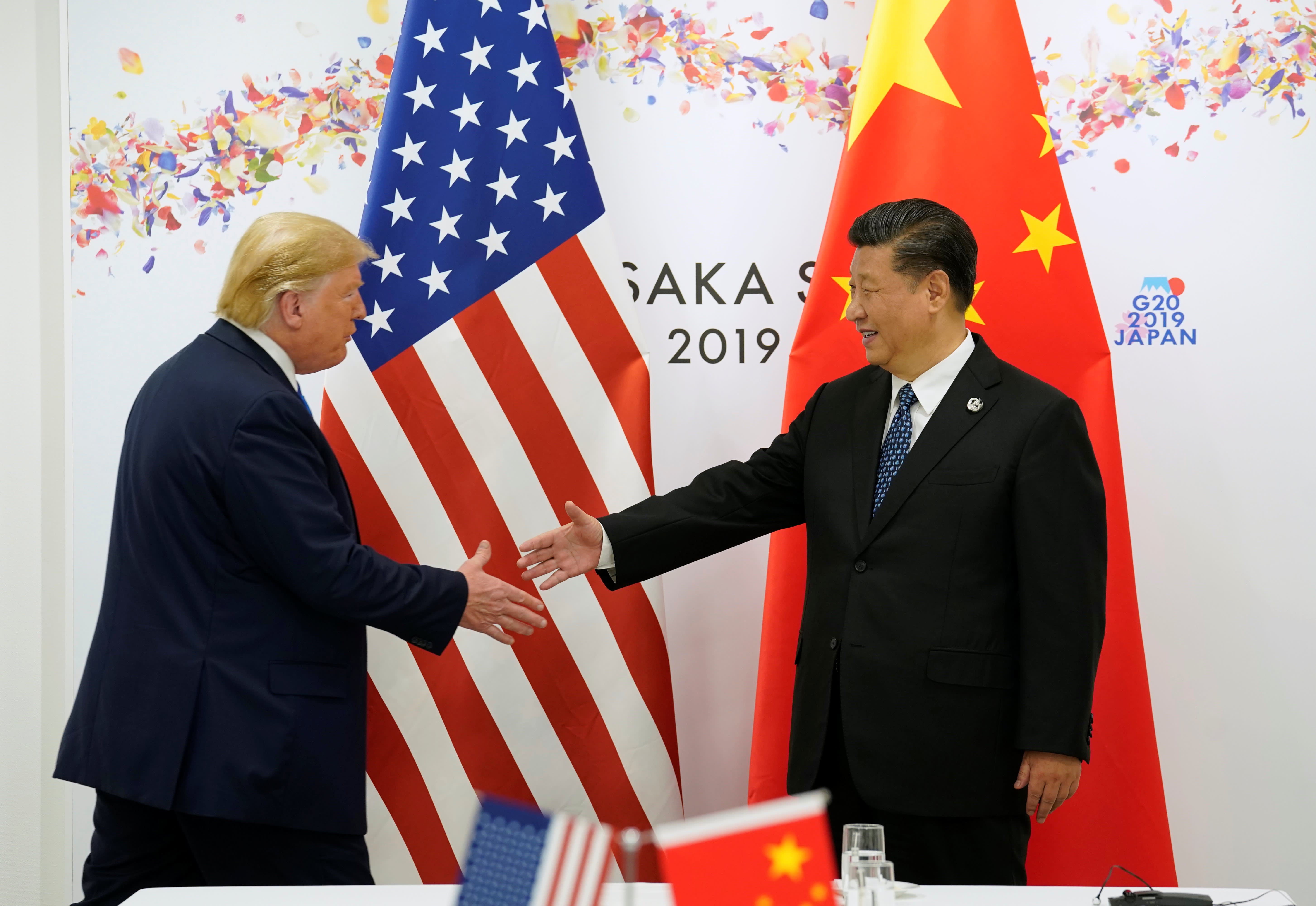U.S. President Donald Trump and China's President Xi Jinping shake hands before their bilateral meeting during the G-20 leaders summit in Osaka, Japan on June 29, 2019.
Kevin Lamarque | Reuters
Olive branches were extended from both China and the U.S. as the two nations are set to restart face-to-face trade negotiations after a monthlong truce.
President Donald Trump on Monday agreed to give "timely licensing decisions" to allow a slew of tech companies including Google and Broadcom to sell to Chinese telecom giant Huawei. The administration blacklisted Huawei in May at the height of the trade war, effectively halting its ability to buy U.S.-made chips.
On China's side, President Xi Jinping seems to be following through on his promise made at the G-20 summit to continue buying U.S. agricultural products. Chinese companies have reached out to U.S. exporters to inquire about pricing, and they also filed an application to remove tariffs on the agricultural goods, Chinese state-run media Xinhua reported Monday.
Xinhua called the move a "constructive action," showing "the sincerity of cooperation to the U.S."
These goodwill gestures come as the two countries are likely to have in-person meetings soon after their phone conversations last week. Treasury Secretary Steven Mnuchin said last week that a face-to face meeting "makes sense" and "would anticipate" the U.S. to set up one.
However, hurdles still persist on multiple fronts. Many lawmakers still strongly oppose any relief for Huawei, seeing it as a major threat to national security. The concern was heightened after The Washington Post reported Huawei worked with the North Korean government to build and maintain a commercial wireless network. Huawei told the Post that it "has no business presence" in North Korea.
"Huawei is a national security threat. That's the bottom line. We have to think about it that way," Sen. Rick Scott, R-Fla., told CNBC's "Squawk Box" on Tuesday. "Now we heard reports that they violated American laws and they are doing business with North Korea. We've got to understand that before we go down any path of allowing companies to do business with Huawei ... I think there's a lot of support in Congress that we don't do business with Huawei."
Many see Huawei as the key sticking point in resolving the trade dispute between the world's two largest economies. Hu Xijin, a Chinese official tabloid editor followed by Wall Street for insight, said in a Twitter post Tuesday that if the U.S. doesn't lift sanctions on Huawei, a deal won't be reached.
Meanwhile, in an abrupt move, China had added its commerce minister, Zhong Shan, to its negotiating team. Zhong is seen by many officials in Washington as a hard-liner, a sign that China is less likely to make concessions.
China had also said this month that there will be no trade deal unless existing tariffs are stripped, while Trump is showing no signs of backing down, still threatening to slap tariffs on another $325 billion of Chinese goods. The agricultural purchases are also seen as key for Trump to aide farmers already hurt by the trade war ahead of the presidential election in 2020.


